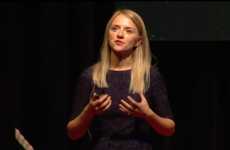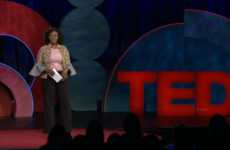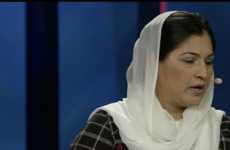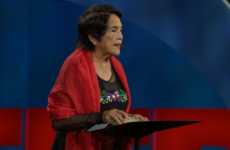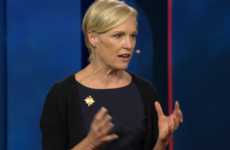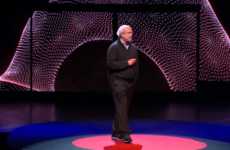
Need Inspiration?
Get inspired by 4,000+ keynote speaker videos & our founder, a top keynote speaker on innovation.
Hajer Sharief's Talk on Politics Delves into the Family Environment
Kalin Ned — July 23, 2019 — Keynote Trends
Hajer Sharief is an activist who delivers a TED talk on politics that encourages people — mainly women, youth, and people of color, to not be passive when it comes to decision-making. As the co-founder of Together We Build It Foundation — an organization that is dedicated to advocating for human rights and gender equality in Libya, Sharief has quite a bit to say about political engagement and the power that it has.
The talk on politics begins with a short anecdote, where the speaker shares how she has been brought up. From a very early age, Sharief's parents have made a weekly ritual where parents and children stood on equal grounds and were free to discuss family issues with no consequences. It was called 'Friday Democracy Meetings' and the two rules were to speak open and freely, and whatever was said in the meeting, stayed in the meeting. Because of this weekly event, Sharief started getting a taste of negotiating, compromising, building alliances and making decisions — skills that she is later to apply to her work as a human rights activist.
The talk on politics naturally shifts to the importance of people engaging in the policy-making processes of their region. Sharief argues that being too young or not having enough political experience does not offer enough justification for people to forfeit their choice about their own access to healthcare, how their ethnicity is extended in society or how much pension they should get. She argues that one can't really "afford not to be interested or participate in politics," because it is not only activism — it is awareness and the power of choice.
Sharief's talk on politics is strongly centered around the value of teaching decision-making early in life and pushing to be a part of the political process.
The talk on politics begins with a short anecdote, where the speaker shares how she has been brought up. From a very early age, Sharief's parents have made a weekly ritual where parents and children stood on equal grounds and were free to discuss family issues with no consequences. It was called 'Friday Democracy Meetings' and the two rules were to speak open and freely, and whatever was said in the meeting, stayed in the meeting. Because of this weekly event, Sharief started getting a taste of negotiating, compromising, building alliances and making decisions — skills that she is later to apply to her work as a human rights activist.
The talk on politics naturally shifts to the importance of people engaging in the policy-making processes of their region. Sharief argues that being too young or not having enough political experience does not offer enough justification for people to forfeit their choice about their own access to healthcare, how their ethnicity is extended in society or how much pension they should get. She argues that one can't really "afford not to be interested or participate in politics," because it is not only activism — it is awareness and the power of choice.
Sharief's talk on politics is strongly centered around the value of teaching decision-making early in life and pushing to be a part of the political process.
6.1
Score
Popularity
Activity
Freshness


